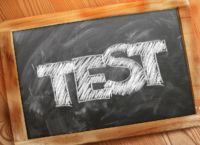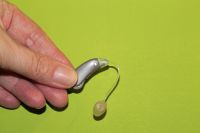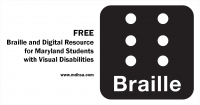IDEA: Federal Special Education Law
Federal law governs how special education services are provided to students enrolled in their local public schools. Specifically, the Individuals with Disabilities Education Act (IDEA) explicitly sets out how public schools must identify, assess, and provide a Free and Appropriate Public Education (FAPE) for children identified as having special learning needs.
Homeschool eligibility for special education services are not explicitly discussed in IDEA. However, a May 2000 memo from the Federal Office of Special Education Programs addressed the rights of homeschoolers under IDEA. Specifically, question #44 addresses OSEP’s interpretation of homeschooler’s eligibility for special education services under IDEA.
Whether home schools are “private schools,” including home day care, is determined by the State. If the State recognizes home schools or home day care as private schools, children with disabilities in those home schools or home day care must be treated in the same way as other parentally-placed private school children with disabilities. If the State does not recognize home schools or home day care as private schools, children with disabilities who are home-schooled or in home day care are still covered by the child find obligations of SEAs and LEAs, and these agencies must ensure that home-schooled children and those in home day care who have disabilities are located, identified, and evaluated, and that FAPE is available if their parents choose to enroll them in public schools.2000 OSEP Memo
In other words, schools – at a minimum – must conduct Child Find evaluations for homeschool children to determine if they have a disability. The issue of whether homeschool children are entitled to actual special education services, however, is not clearly defined at the federal level.
Maryland Special Education Services
In 2006, the Maryland Attorney General’s office released a letter addressed to Senator Brochin, that addressed whether public schools are required to provide special education services to homeschool children. In summary, the letter informed school administrators that –
. . . neither IDEA nor the State education law requires that a local school system provide speech therapy services to a home-schooled student. However, neither do they bar the school system from providing such services.2006 Maryland AG Letter
In other words, no direct legal mandate requires Maryland public schools to provide special education services to homeschool families – other than Child Find evaluations. At the same time, no law prohibits schools from offering services, either. This leaves the decision for whether a homeschool family receives special education services up to individual school principals.
Most schools inform homeschool parents that they may enroll their child in public school in order to receive special education services. Some Maryland school principals, however, try to work with homeschoolers to find ways to offer limited services, such as speech, to families willing to travel to the school.
Special Education Resources You Can Use
Requesting testing under IDEA
Accessing free special education evaluations through your local public schoolWalking Through the IEP Process
What to expect when you initiate a request for request for special education servicesFree and Low-Cost Testing: Community-based options for psycho-educational testing, if you don’t want to go through your public school and you cannot afford private testing.
Free resources for visually impaired children
Recorded, large-print, and braille books, as well as assistive technology for blind and visually impaired individuals from the Maryland State Library for the Blind and Physically HandicappedAutism Waiver Program: The good news – and the bad – about autism waivers and homeschoolers
Hearing Aid Loan Bank: Free loaner program for deaf and hard of hearing children
Last modified on September 18, 2019




